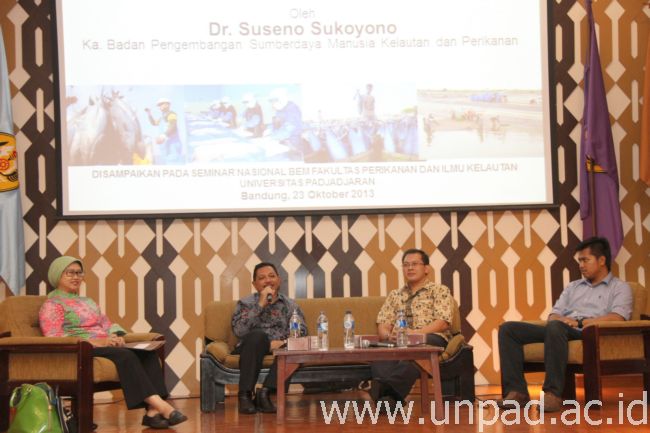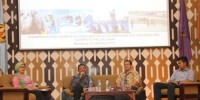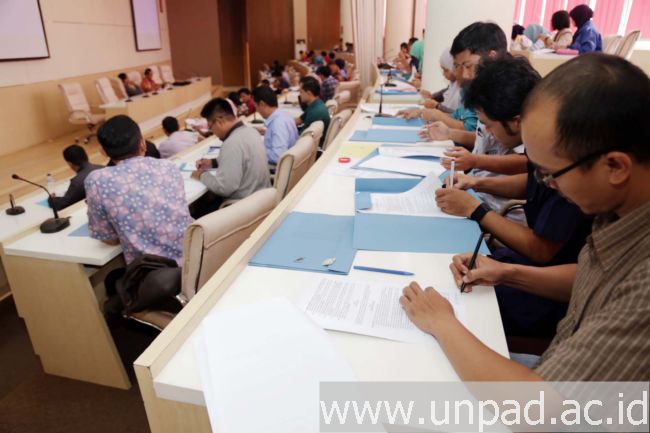[Unpad.ac.id, 24/10/2013] When speaking at the national seminar on creativity, innovation, and competitiveness of the fisheries and marine science graduates organized by faculty of fisheries and marine science, the head of agency of human resource development marine affairs and fisheries Republic of Indonesia, Dr.Suseno Sukoyono, argued that in order to increase the level of fisheries and marine products, blue economy is deemed as the best sustainable strategy. What’s more, wastes can also be reduced.

He admitted that marine and fish industry contributes greatly to the national development in addition to product competitiveness. However, a more sustainable strategy so called ‘blue economy’ must never be neglected. “One example of blue economy is turning fish bones into edible crackers, fish skins into shoes, and many more. Saying it simply, nothing goes wasted,” said Sukoyono.
Indonesia is well known for its vast ocean covering an area of 5.8 km2 with coastal line that reaches 104,000 km long. It is the biggest marine mega-biodiversity in the world with its 8500 fish species, 555 species of seaweeds, and 950 species of corals. Consequently, fisheries and marine resources pose the biggest potential to manage. Within the period of 2001-2010, fishing industry grew at 1.9% annually. “Unfortunately, this big potential has yet to be managed correctly. There is so much that we can do about it,” said he.
As of today, Indonesian fishing industry is now directing toward valued added products. Its export value in 2011-2012 grew to 11.62% (national -6.24%) and import value -15.43% (national 9.40%). “Our trade balance in 2012 indicated that fishing industry benefited Indonesia with a surplus of USD 3.52 billion or 81.1% of the total export-import transaction,” he added.
According to Mc. Kinsey Global Institute, Indonesia will shortly become the seventh biggest economic country in the world. To achieve this, the country needs 113 million professional workers, which means a very huge potential for marine science students to be employed in fisheries and marine industry, which include fish farming and its management.
Besides Sukoyono, also speaking in the seminar was Rubi Haliman, the senior manager for quality assurance aquaculture PT Central Pertiwi Bahari, and FPIK alumnus, now working as marine science and diving instructor, Fanny Kristiadhy.

